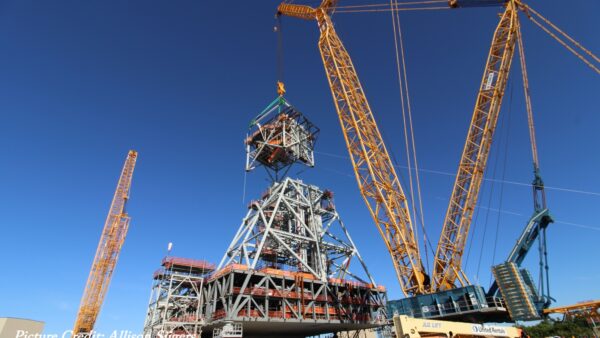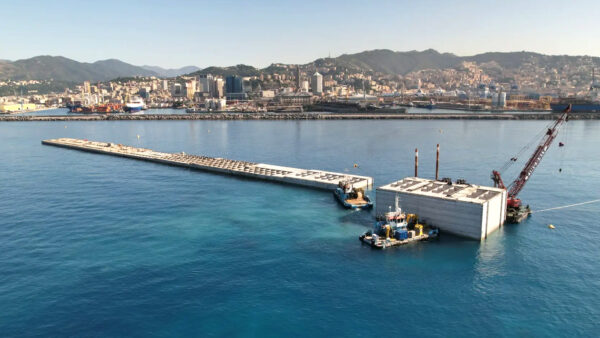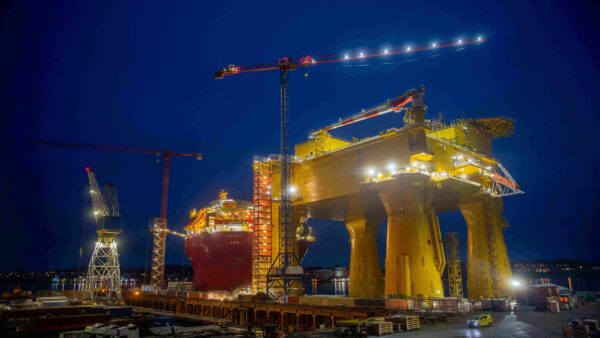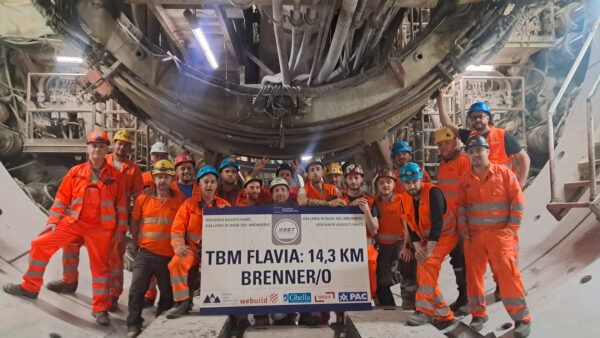30 April 2014
UK lawmakers have decisively backed legislation enabling a controversial high-speed rail link between London and Birmingham to be constructed, despite a rebellion of Conservative Party MPs.
Thirty-four Conservative members of parliament voted against the government on the new rail scheme and 47 missed the vote or abstained in the poll held Monday night.
But in the end MPs approved the bill at second reading by 452 to 41 votes against.
UK Transport Minister Robert Goodwill called it an “important step” in taking the controversial project, called HS2, forward.
It has a long way to go still in working its way through Parliament but the bill would grant the powers required to construct and operate phase one of the multi-billion-pound project between London and the West Midlands.
Because of its complexity, and the fierce opposition to HS2, the bill is not expected to become law until after the 2015 general election. It does not guarantee that HS2 will be built, but HS2 cannot be built without the bill becoming law.
The government proposes to start construction of the first phase of HS2 in 2017, with the 140-mile line between London and Birmingham due to be operational by 2026.
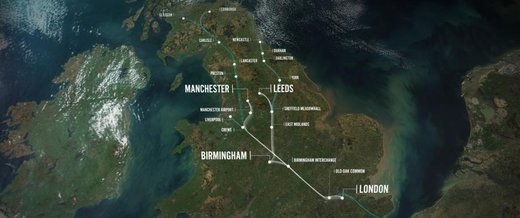
The first phase of HS2 will connect London and Birmingham, the second, Birmingham to Manchester and Leeds (HS2 Ltd.)
A separate bill will be brought in later by the government to allow the second phase, which comprises two separate lines, one from Birmingham north to Manchester (95 miles) and another from Birmingham to Leeds (116 miles). The aim is for those sections to be running in 2033.
£50bn price tag
The cost of building the greenfield railway is estimated at £42.6bn, while the trains have been costed at £7.5bn, giving HS2 a £50bn price tag – to be paid by taxpayers.
The HS2 scheme has sharply divided opinion in the UK. Last month a poll commissioned by The Observer newspaper found that just over a third of people (36%) supported it, while 30% opposed it.
Meanwhile, 64% backed improving existing connections between northern UK cities such as Liverpool, Manchester, Sheffield and Leeds.
HS2 Ltd., the company formed to develop the scheme, argues that the new network is needed because the country’s existing rail system is “facing complete saturation” and won’t be able to handle projected growth in freight and passenger traffic.
Supporters also claim HS2 will help reduce carbon emissions by reducing car journeys, and that it will bring prosperity to northern cities.
Opposition to HS2 started among groups directly affected by the proposed route but has since broadened to an attack on the claimed wider benefits.
A report this week by the Institute of Economic Affairs (IEA) said the government risked misleading the public with claims that HS2 would transform the north of England because the only other high-speed link in the UK – from London to Kent – did no economic good for Kent.
The report’s author, Richard Wellings, said the government should instead improve local and regional links in the north of England, including a cross-Pennine project linking Sheffield, Leeds and Manchester.
“Taken alongside the major flaws in the business case and capacity argument,” the IEA said, “a project which will only carry roughly 2% of passenger traffic when the full route is completed should be reconsidered urgently.”

